Fertilizer Manufacturers in USA play a pivotal role in the agricultural landscape, contributing significantly to the nation’s food production and sustainability. As the world’s population continues to rise, the demand for higher crop yields and enhanced food security grows in parallel. The USA, with its advanced agricultural research and technology, stands out as a global leader in the fertilizer industry, ensuring that farmers have access to high-quality, efficient, and sustainable fertilizers.
The American fertilizer industry has a rich history of innovation, leading the way in developing nutrient-rich fertilizers that cater to various crop needs. From large-scale farming operations to small family-owned farms, the fertilizer manufacturers in USA are instrumental in supporting the nation’s agricultural goals. According to the International Fertilizer Association, the USA ranks among the top producers of nitrogen, phosphate, and potash fertilizers, making it a significant player in the global market.
Major fertilizer companies in the USA leverage cutting-edge technology to produce fertilizers that meet the diverse requirements of different soil types and climates, which significantly enhances crop productivity. These companies are not just suppliers; they are partners in the journey toward sustainable agriculture. The extensive experience and expertise of these agricultural fertilizer suppliers in the USA make them an indispensable part of modern farming practices.
The importance of the fertilizer industry in the USA extends beyond just crop production. It drives technological advancements, supports research initiatives, and contributes to the nation’s economy. By combining traditional farming knowledge with modern techniques, the USA continues to be a frontrunner in the global fertilizer market, ensuring that crops receive the essential nutrients they need to thrive. This combination of tradition and technology makes the USA a powerhouse in the agricultural sector, fostering innovation and sustainability.
When we look at the fertilizer manufacturers in USA, it becomes evident that their commitment to quality, research, and sustainable practices sets them apart from competitors worldwide. As a result, they play an essential role in shaping the future of global agriculture, making them vital contributors to the mission of feeding a growing population.
The Role of Fertilizer Manufacturers in USA’s Agricultural Growth
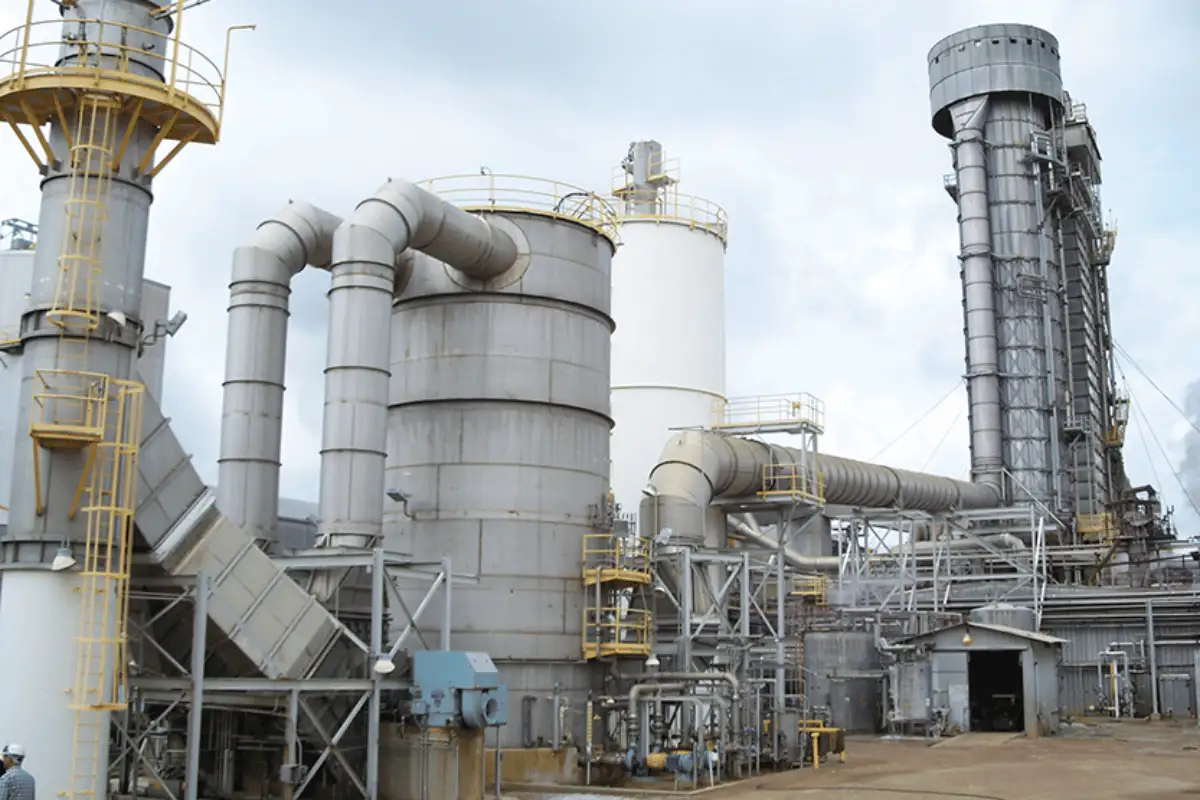
Fertilizer manufacturers in USA are the driving force behind the country’s impressive agricultural output, playing a vital role in enhancing crop yields, improving soil fertility, and ensuring food security. With agriculture being a cornerstone of the American economy, these manufacturers contribute significantly to maintaining a stable and productive food supply, especially as the demand for agricultural products continues to rise.
One of the key contributions of fertilizer manufacturers in USA is their ability to develop products that boost crop productivity. By providing essential nutrients such as nitrogen, phosphorus, and potassium, these fertilizers ensure that crops receive the nourishment they need to grow efficiently. Dr. Robert Mullen, an agronomy expert, once stated, “Fertilizers are the food for plants. Without them, we wouldn’t be able to meet the food demands of our growing population.” This statement emphasizes the critical role these manufacturers play in sustaining the country’s agricultural growth.
Beyond just enhancing crop yields, the agricultural fertilizer suppliers in USA are at the forefront of promoting sustainable farming practices. Many of these manufacturers have invested heavily in research and development to create eco-friendly fertilizers that reduce the environmental impact of farming. This approach supports the concept of sustainable fertilizer production in USA, ensuring that future generations can continue to benefit from healthy soils and abundant harvests.
These manufacturers also introduce innovative technologies, such as precision agriculture, which allows farmers to apply fertilizers more accurately and efficiently. This not only reduces waste but also enhances crop quality. By incorporating advanced technologies, such as controlled-release fertilizers and smart irrigation systems, they are actively reducing the carbon footprint associated with fertilizer use, making farming more sustainable and environmentally friendly.
The impact of fertilizers on American farming is immense. According to the Fertilizer Institute, over 50% of the crop yields in the USA are directly attributed to the use of fertilizers. This underscores the undeniable importance of fertilizer manufacturers in USA in supporting the nation’s agricultural sector. These manufacturers ensure that American farmers have access to the latest and most effective fertilizer products, enabling them to produce more food on the same amount of land, which is crucial in a world where arable land is becoming increasingly scarce.
Furthermore, these manufacturers play a pivotal role in feeding the growing population by ensuring a consistent supply of high-quality fertilizers. Without the contributions of these companies, American farmers would struggle to meet the demands of both the domestic and global markets. Thus, the role of fertilizer manufacturers in USA extends beyond just providing agricultural inputs; they are champions of innovation, sustainability, and productivity, ensuring that America continues to be a leader in the global agricultural industry.
Criteria for Selecting Top Fertilizer Manufacturers in the USA
When it comes to choosing the best fertilizer suppliers in USA, several key factors set the top manufacturers apart from the rest. These criteria ensure that the selected companies are not only producing high-quality fertilizers but are also committed to sustainable practices, innovation, and consistent market presence. Here’s a closer look at the essential factors considered when identifying the leading fertilizer manufacturers in USA.
1. Production Capacity and Efficiency
One of the primary criteria is the production capacity of the manufacturer. The top fertilizer suppliers in USA have the capability to produce large quantities of fertilizers to meet the high demands of American farmers. This involves state-of-the-art manufacturing facilities, advanced production techniques, and an efficient supply chain. For example, The Mosaic Company and CF Industries are renowned for their large-scale operations, which enable them to supply fertilizers not only to the domestic market but also to international clients.
2. Product Quality and Range
The quality and diversity of products offered by fertilizer manufacturers in USA play a crucial role in their selection. Leading manufacturers provide a wide range of fertilizers, including nitrogen-based, phosphorus-based, potassium-based, and even organic options. This diversity ensures that farmers have access to fertilizers that suit their specific crop needs and soil types. According to Dr. John Sawyer, a professor of agronomy, “The effectiveness of a fertilizer lies not just in its nutrient content but also in how well it matches the crop’s nutritional requirements.”
3. Sustainable Fertilizer Production Practices
Sustainability is an increasingly important criterion for selecting top fertilizer manufacturers in USA. Companies that adopt eco-friendly manufacturing processes, renewable energy sources, and sustainable sourcing of raw materials are more likely to be considered industry leaders. For example, Nutrien Ltd. has gained recognition for its commitment to sustainability, incorporating renewable energy and reducing carbon emissions in its fertilizer production processes. These practices align with the growing need for environmentally responsible agricultural inputs.
4. Innovation and Technological Advancements
In today’s rapidly evolving agricultural sector, innovation is key. The fertilizer manufacturers in USA that lead the industry are those that invest in research and development to create advanced fertilizer formulations and technologies. These innovations include precision application techniques, controlled-release fertilizers, and nutrient-enhanced products that ensure optimal crop growth. By embracing such advancements, companies like Yara North America have established themselves as pioneers in offering technologically advanced fertilizer solutions.
5. Market Reputation and Customer Trust
A manufacturer’s reputation is a significant indicator of its reliability and quality. The best fertilizer suppliers in USA have earned the trust of farmers and agricultural businesses through years of consistent performance, excellent customer service, and high-quality products. Companies like The Andersons, Inc. and Helena Agri-Enterprises, Inc. are known for their strong relationships with their clients, providing tailored solutions and expert advice to farmers across the country.
6. Environmental Initiatives and Certifications
Leading fertilizer manufacturers in USA are increasingly focused on implementing sustainable and environmentally friendly practices. Many of these companies have obtained certifications such as ISO 14001, which demonstrates their commitment to environmental management. These certifications assure farmers that they are purchasing fertilizers from companies that prioritize ecological conservation and sustainable farming.
By evaluating fertilizer manufacturers in USA based on these criteria, farmers can ensure they are partnering with companies that provide high-quality, sustainable, and effective products. These factors not only enhance crop productivity but also contribute to long-term soil health and environmental preservation, resonating with the farmers’ need for reliable and sustainable agricultural inputs.
Profiles of the Top 10 Leading Fertilizer Manufacturers in the USA
In this section, we will explore the top fertilizer manufacturers in USA, providing detailed profiles that highlight their background, product range, market reach, and sustainability initiatives. These companies have established themselves as industry leaders, thanks to their commitment to quality, innovation, and sustainable practices.
1. The Mosaic Company
- Company Background: Established in 2004, The Mosaic Company is one of the largest producers of phosphate and potash fertilizers in the world. Headquartered in Tampa, Florida, it has grown to become a leading name in the fertilizer industry.
- Product Range: Specializes in phosphate and potassium fertilizers, offering products such as MicroEssentials®, K-Mag®, and Aspire®.
- Market Reach: With a significant presence across North America and globally, Mosaic serves both large-scale commercial farms and small agricultural operations.
- Sustainability Initiatives: Mosaic is dedicated to reducing its environmental footprint, actively investing in water conservation, renewable energy, and nutrient management programs.
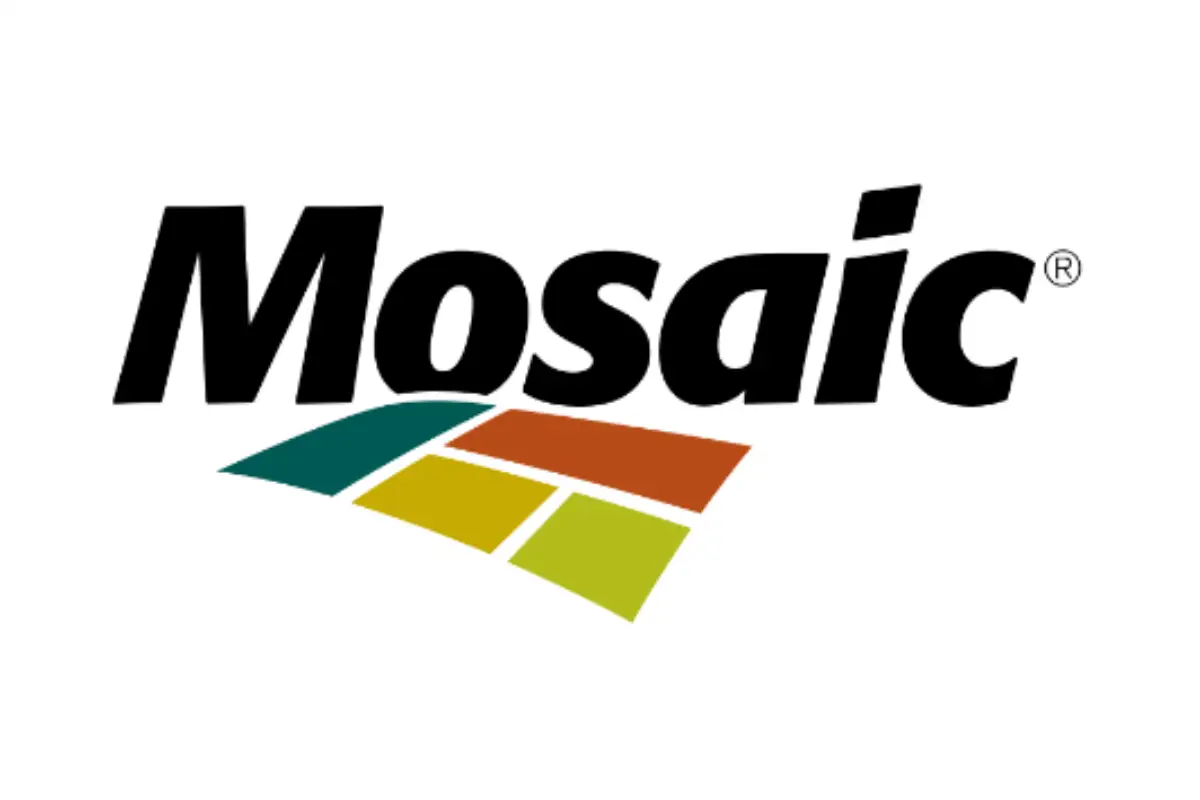
2. CF Industries Holdings, Inc.
- Company Background: Founded in 1946, CF Industries has become a dominant player in nitrogen fertilizer production, with its headquarters in Deerfield, Illinois.
- Product Range: Offers a variety of nitrogen-based fertilizers, including urea, ammonium nitrate, and anhydrous ammonia.
- Market Reach: As one of the largest fertilizer manufacturers in North America, CF Industries operates multiple production facilities across the USA, serving farmers worldwide.
- Sustainability Initiatives: The company is committed to sustainable practices, aiming to reduce greenhouse gas emissions and improve energy efficiency in its production processes.
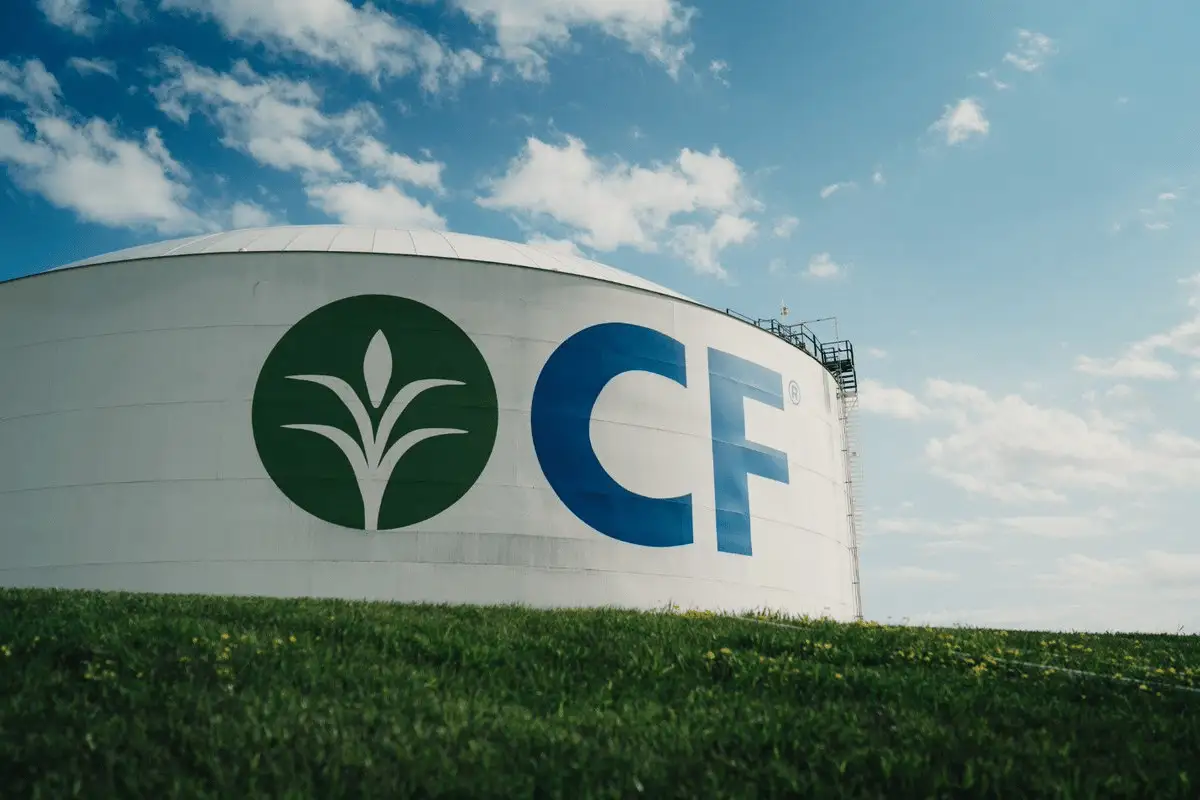
3. Nutrien Ltd.
- Company Background: Established in 2018 following the merger of PotashCorp and Agrium, Nutrien Ltd. is now the world’s largest provider of crop inputs and services.
- Product Range: Nutrien offers a broad range of fertilizers, including potash, nitrogen, and phosphate products, along with specialty fertilizers.
- Market Reach: Nutrien has a strong presence in the USA, Canada, and internationally, with over 1,500 retail locations worldwide.
- Sustainability Initiatives: Nutrien actively pursues sustainable agriculture through the development of enhanced-efficiency fertilizers, carbon sequestration programs, and water conservation efforts.
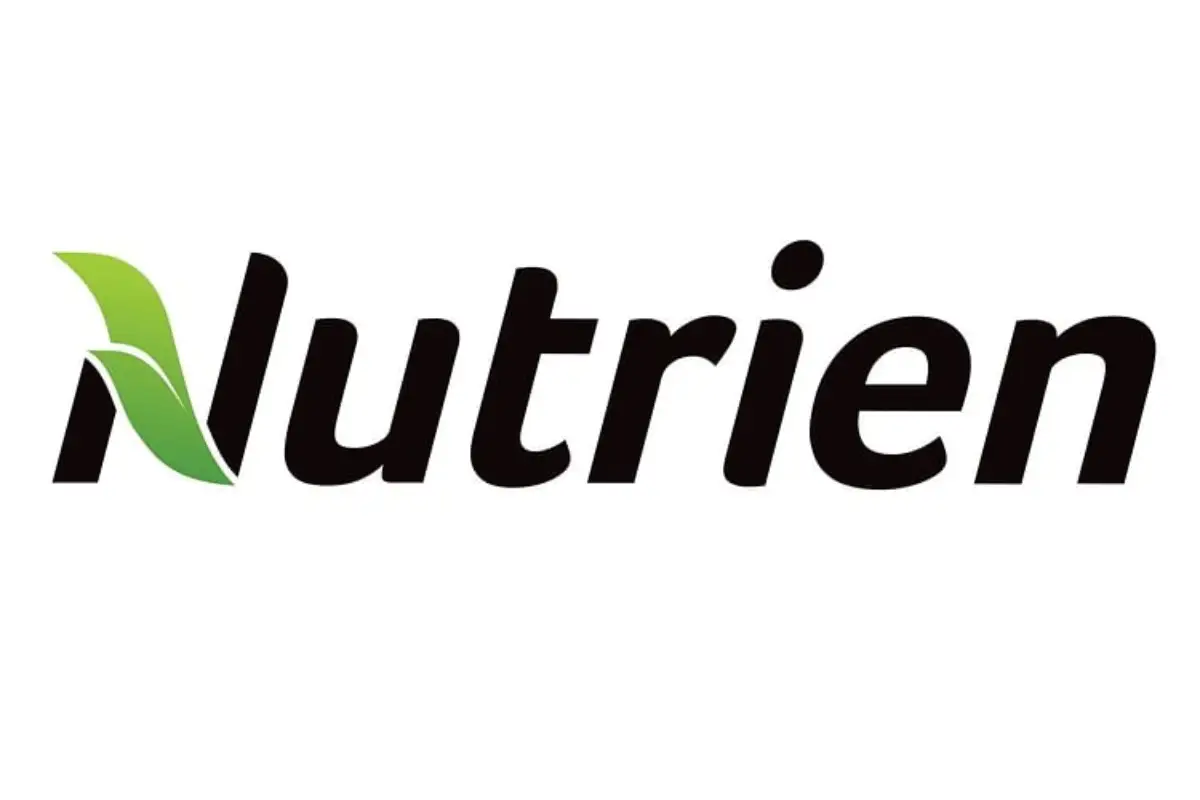
4. Yara North America
- Company Background: Established in 1905 as part of Yara International, Yara North America has a rich history in fertilizer manufacturing. Its headquarters is located in Tampa, Florida.
- Product Range: Yara specializes in nitrate-based fertilizers, compound fertilizers, and micronutrient blends, with products such as YaraLiva® and YaraMila®.
- Market Reach: With a strong distribution network, Yara serves farmers across North America, Europe, and other parts of the world.
- Sustainability Initiatives: Yara is known for its commitment to environmental sustainability, promoting precision agriculture and reducing greenhouse gas emissions in fertilizer production.
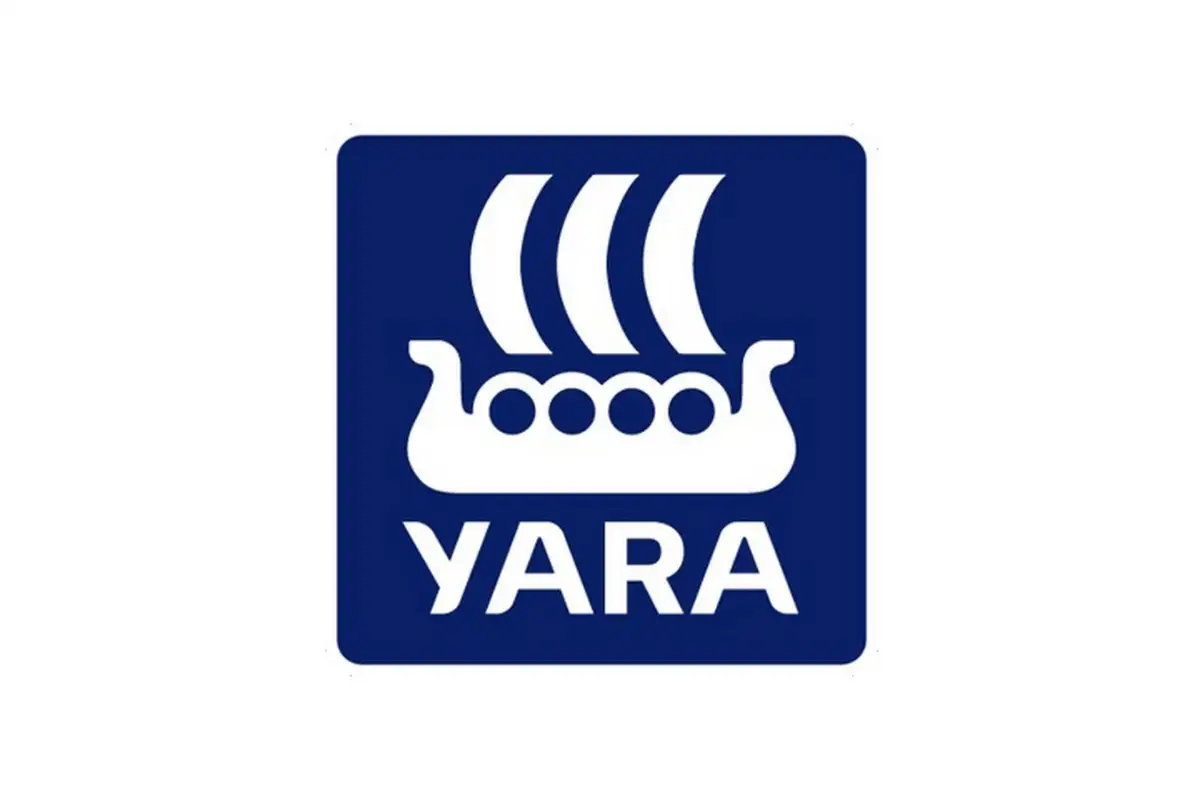
5. Koch Industries, Inc. (Koch Fertilizer)
- Company Background: Established in 1940, Koch Fertilizer is a subsidiary of Koch Industries, one of the largest privately-owned companies in the USA, with headquarters in Wichita, Kansas.
- Product Range: Produces nitrogen-based fertilizers such as urea, UAN (urea ammonium nitrate), and anhydrous ammonia.
- Market Reach: Koch Fertilizer has an extensive distribution network across North America, catering to a diverse range of agricultural needs.
- Sustainability Initiatives: The company focuses on energy-efficient production processes and invests in technologies that reduce emissions and improve fertilizer application efficiency.
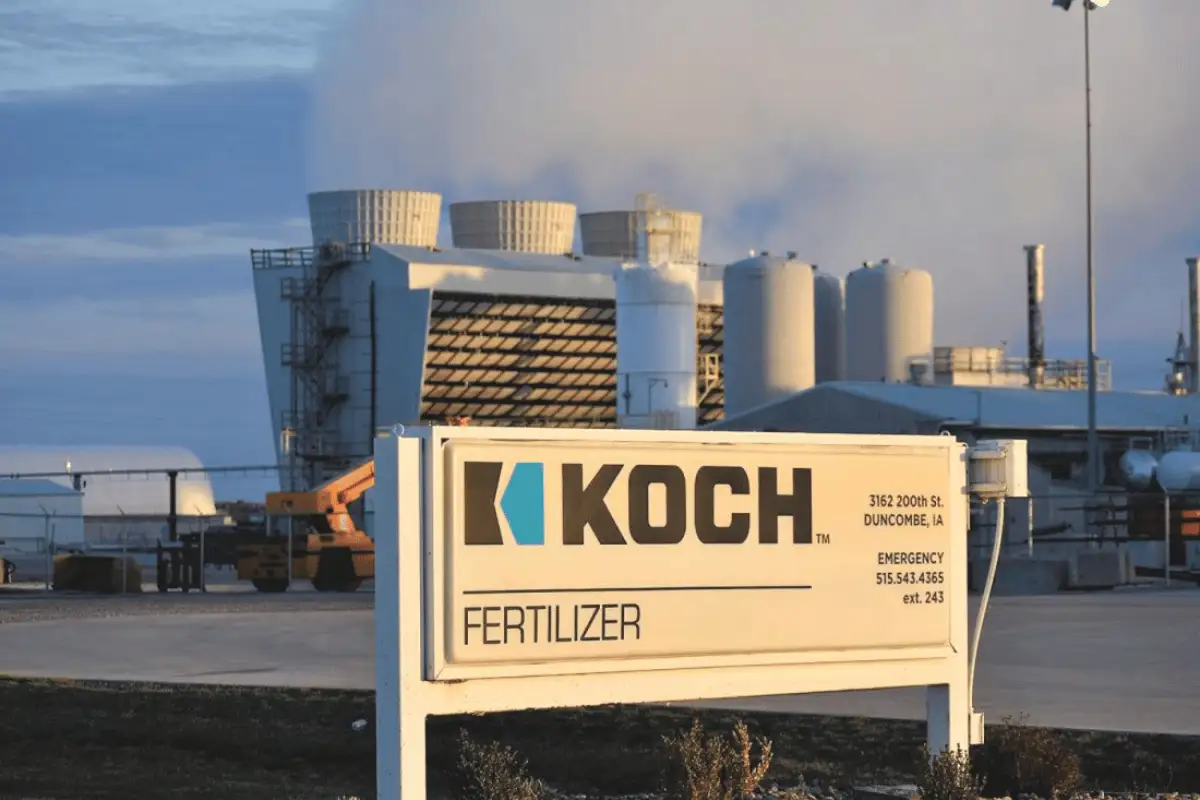
6. Helena Agri-Enterprises, Inc.
- Company Background: Established in 1957, Helena Agri-Enterprises, Inc. is headquartered in Collierville, Tennessee, and has evolved into a leading provider of agricultural products and services.
- Product Range: Offers a wide variety of fertilizers, crop protection products, and seed treatments, including custom blends tailored to specific crops.
- Market Reach: Helena operates across the USA, serving farmers, ranchers, and agricultural businesses through an extensive retail network.
- Sustainability Initiatives: Helena is dedicated to sustainable agriculture, focusing on precision farming techniques, soil health, and environmentally friendly fertilizer formulations.
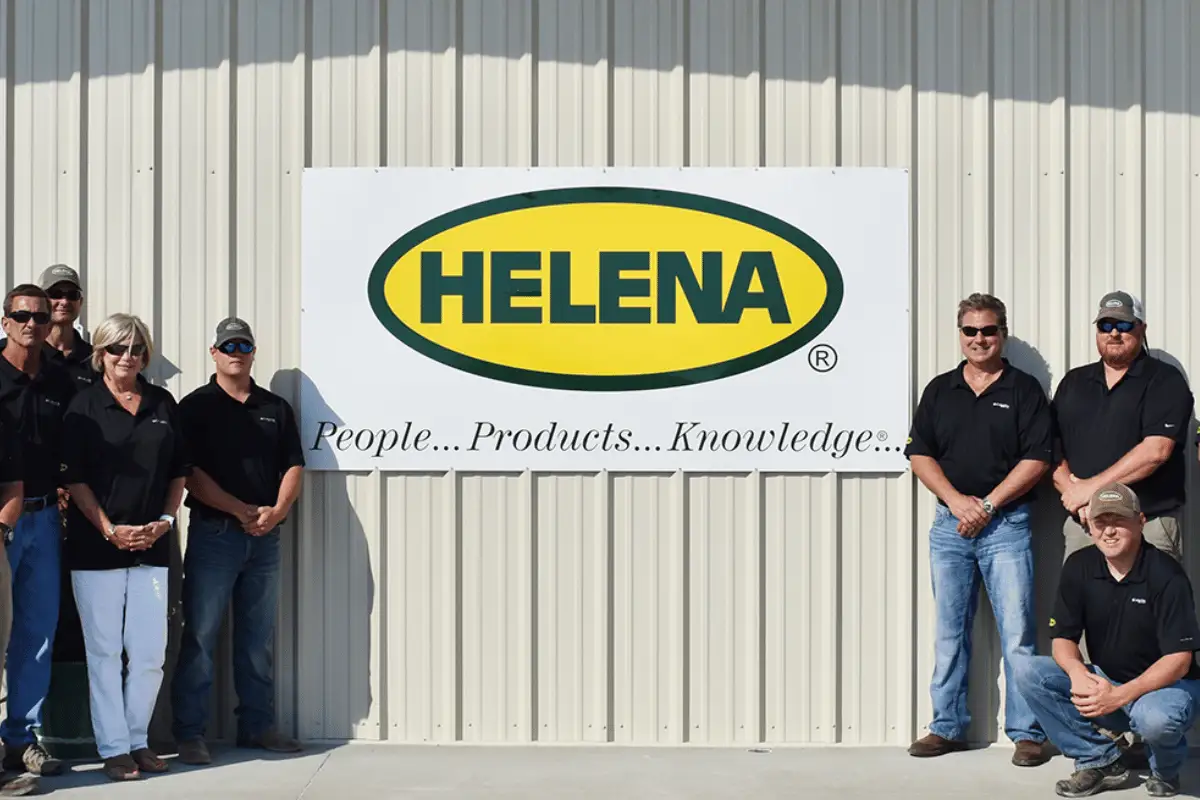
7. The Andersons, Inc.
- Company Background: Founded in 1947 and headquartered in Maumee, Ohio, The Andersons, Inc. has become a trusted name in the fertilizer industry.
- Product Range: Offers a wide range of fertilizers, soil conditioners, and specialty nutrients, including organic options.
- Market Reach: The Andersons have a strong presence in North America, with distribution channels reaching various agricultural markets.
- Sustainability Initiatives: The company emphasizes sustainable agriculture by offering organic fertilizers and promoting responsible nutrient management practices.
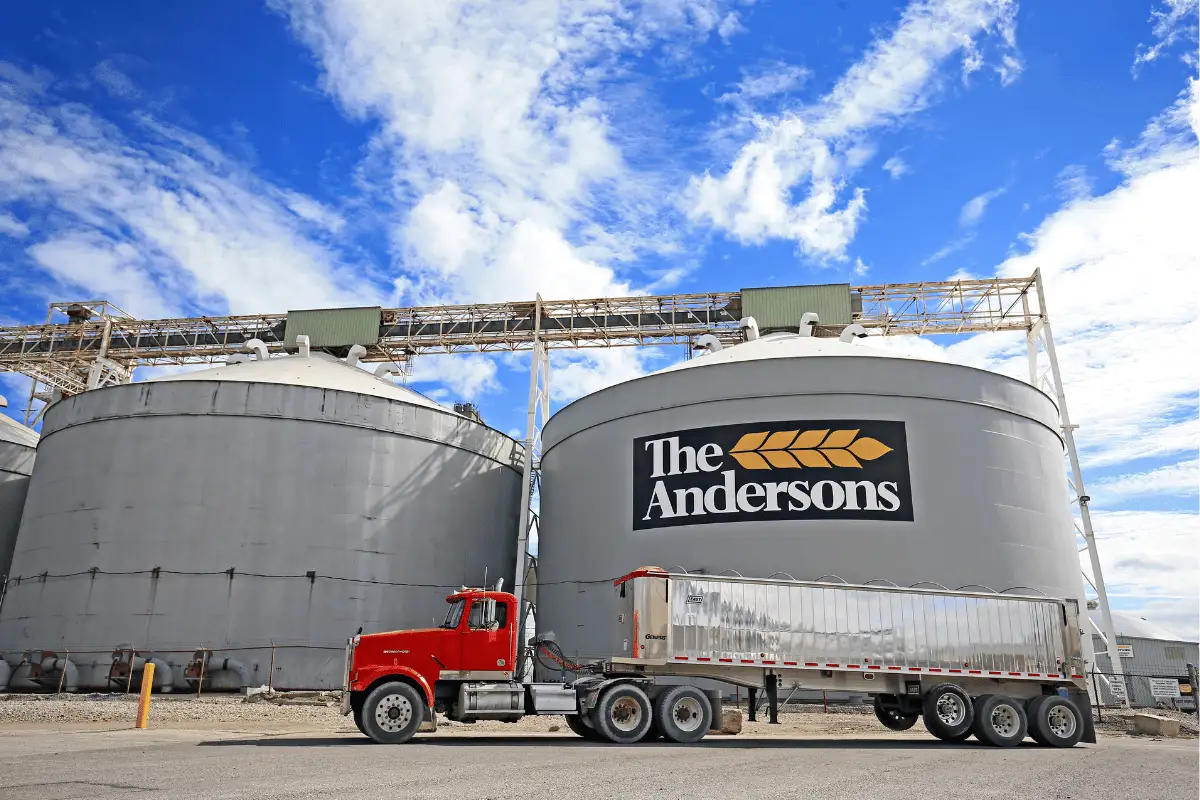
8. Wilbur-Ellis Company LLC
- Company Background: Founded in 1921, Wilbur-Ellis is headquartered in San Francisco, California, and is a leading provider of agricultural inputs, including fertilizers.
- Product Range: Provides customized fertilizer blends, micronutrients, and crop protection products.
- Market Reach: With a widespread network, Wilbur-Ellis serves farmers throughout North America, Asia-Pacific, and beyond.
- Sustainability Initiatives: Wilbur-Ellis is committed to sustainability through responsible sourcing, innovative product development, and supporting sustainable farming practices.
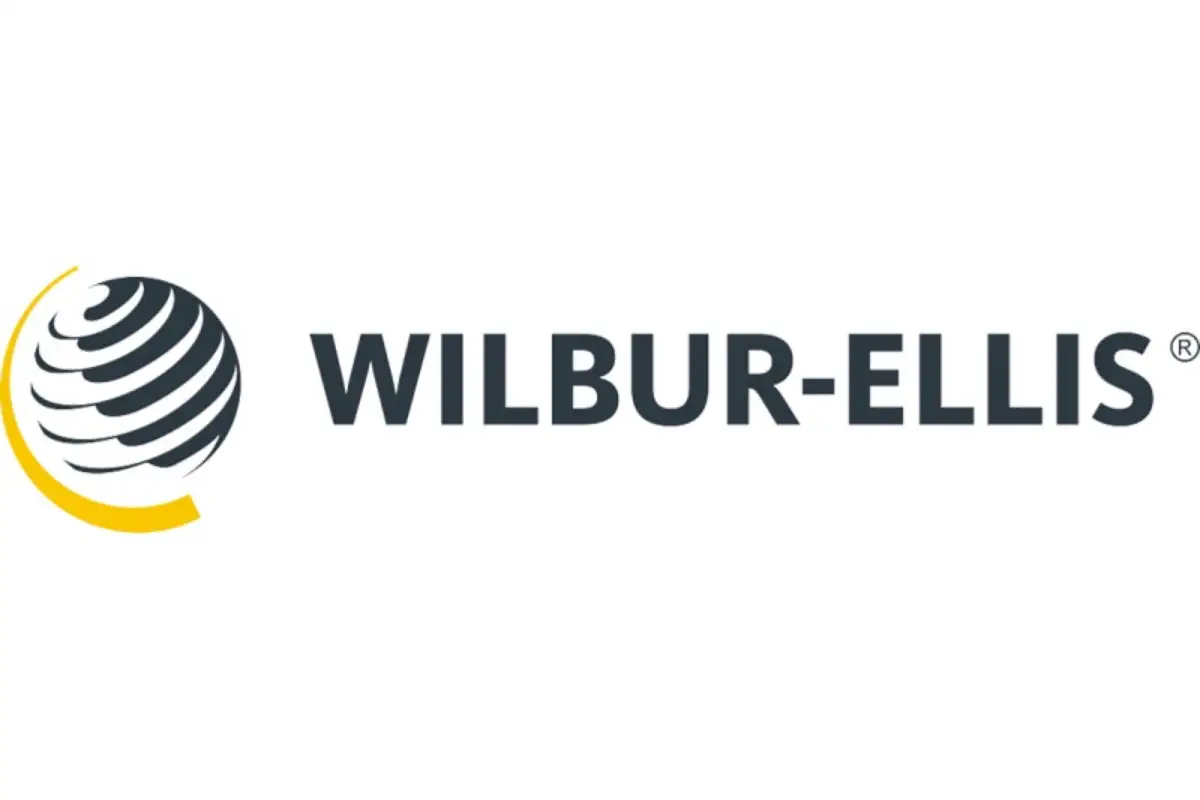
9. CHS Inc.
- Company Background: Established in 1929 and based in Inver Grove Heights, Minnesota, CHS Inc. is a farmer-owned cooperative with a significant presence in the fertilizer industry.
- Product Range: Offers a variety of fertilizers, including NPK blends, micronutrients, and specialty products.
- Market Reach: As one of the largest cooperatives in North America, CHS Inc. serves farmers across the USA and in select international markets.
- Sustainability Initiatives: CHS Inc. promotes sustainable farming practices by investing in renewable energy projects and offering environmentally friendly fertilizer solutions.
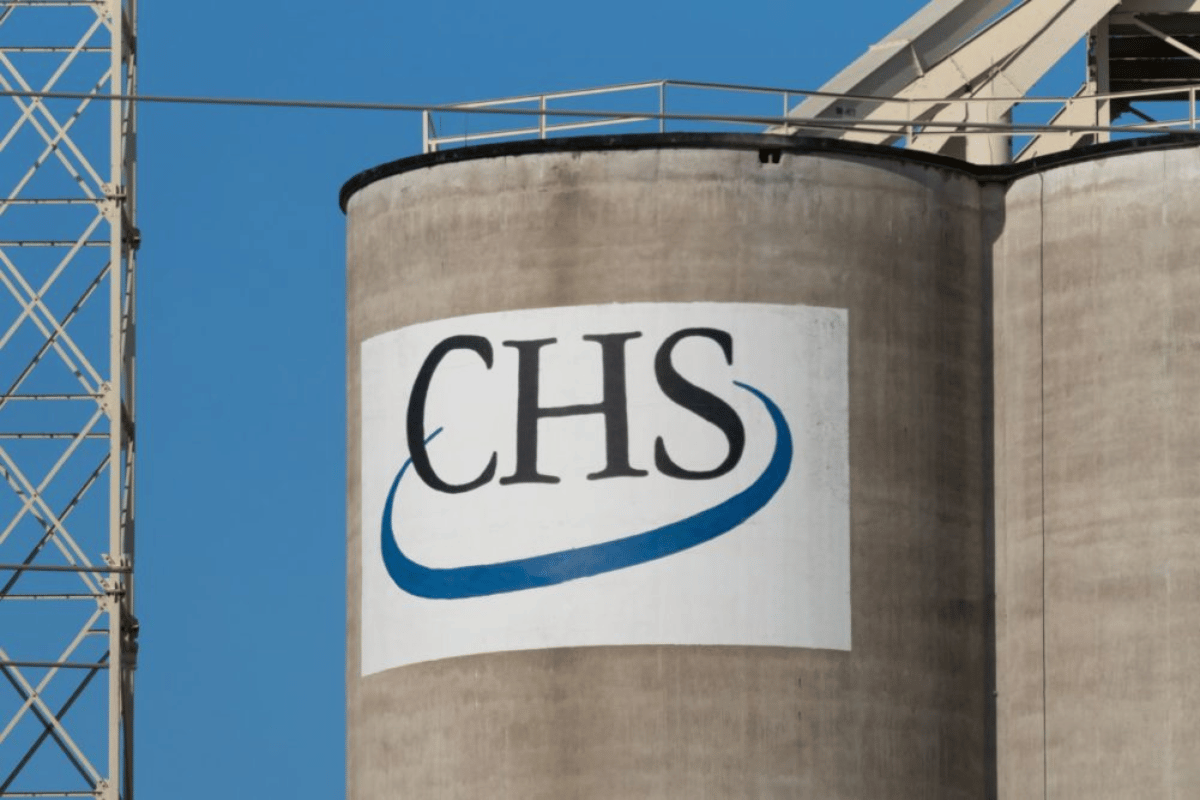
10. Simplot Grower Solutions (J.R. Simplot Company)
- Company Background: Established in 1923, Simplot Grower Solutions is a division of the J.R. Simplot Company, headquartered in Boise, Idaho.
- Product Range: Offers a variety of fertilizers, including nitrogen, phosphate, and specialty blends designed to meet specific crop requirements.
- Market Reach: With a strong presence across North America, Simplot Grower Solutions caters to the needs of both large and small-scale farmers.
- Sustainability Initiatives: The company focuses on sustainable fertilizer production, using renewable energy sources and implementing precision farming practices to reduce environmental impact.

These top fertilizer manufacturers in USA are recognized for their high-quality products, innovative approaches, and dedication to sustainability. Their influence extends beyond national borders, making them essential players in the global fertilizer market, supporting farmers in achieving optimal yields while promoting environmentally conscious practices.
The Evolution of Fertilizer Manufacturing Techniques in the USA
The fertilizer manufacturers in USA have witnessed a remarkable evolution in their production techniques over the years. From traditional manufacturing processes to advanced, high-tech solutions, these manufacturers have continuously adapted to meet the changing demands of the agricultural sector. This evolution has not only increased the efficiency and effectiveness of fertilizer production but also contributed to more sustainable farming practices.
Early Fertilizer Production Methods
In the early days, fertilizer manufacturers in USA relied on basic, manual methods to produce fertilizers. The industry primarily focused on mining and processing natural sources like guano, bone meal, and manure. These fertilizers, though effective to an extent, were limited in their nutrient content and could not meet the increasing demands of growing crops on a large scale.
The introduction of chemical fertilizers in the early 20th century marked a significant shift. Ammonium nitrate, superphosphate, and potassium chloride became the standard fertilizers, providing a more concentrated source of essential nutrients. This change paved the way for modern agricultural practices, allowing farmers to boost crop yields and support the country’s food production needs.
Technological Advancements and Innovations
As technology advanced, so did the methods used by fertilizer manufacturers in USA. One of the most significant innovations was the development of the Haber-Bosch process, which revolutionized nitrogen fertilizer production by synthesizing ammonia from atmospheric nitrogen. This process, still widely used today, allowed manufacturers to produce nitrogen fertilizers on an industrial scale, greatly enhancing crop productivity.
In recent decades, manufacturers have adopted advanced fertilizer production methods that focus on efficiency, precision, and sustainability. For example, the introduction of precision farming technology has transformed how fertilizers are applied. Using GPS-guided systems, sensors, and drones, farmers can now apply fertilizers with pinpoint accuracy, reducing waste and ensuring that crops receive the exact nutrients they need.
Dr. Paul Fixen, a recognized expert in nutrient management, emphasizes, “Precision agriculture allows us to deliver fertilizers in the right amount, at the right time, and in the right place. This not only increases crop yields but also minimizes environmental impact.” Such innovations highlight the critical role that technology plays in the evolution of fertilizer manufacturing.
Innovations in Fertilizer Formulations
The formulation of fertilizers has also evolved significantly, with fertilizer manufacturers in USA developing specialized products to cater to specific crop needs and soil conditions. Controlled-release fertilizers (CRFs) and water-soluble fertilizers have become increasingly popular, offering farmers more control over nutrient availability and absorption.
Manufacturers like Yara North America and Nutrien Ltd. have pioneered the use of smart fertilizers that release nutrients gradually, based on soil moisture, temperature, and crop growth stages. This technology ensures that crops receive nutrients consistently throughout their growth cycle, resulting in healthier plants and higher yields.
Sustainability and Environmental Considerations
In response to environmental concerns, fertilizer manufacturers in USA have embraced sustainability as a core aspect of their production processes. The shift towards more sustainable practices includes reducing greenhouse gas emissions, conserving water, and recycling waste materials in the manufacturing process. For instance, CF Industries has implemented initiatives to reduce nitrogen oxide emissions and improve energy efficiency, while The Mosaic Company focuses on water conservation and waste recycling.
The use of organic fertilizers has also gained momentum, with more manufacturers offering products made from natural sources such as compost, seaweed, and animal manure. These organic options support sustainable farming practices, improve soil health, and reduce the dependency on synthetic fertilizers.
The Role of Automation and Digital Technologies
Modern fertilizer manufacturing in USA has increasingly adopted automation and digital technologies to streamline production processes. Advanced sensors, AI-driven monitoring systems, and automated machinery allow manufacturers to produce fertilizers more efficiently, reducing costs and minimizing human error. For example, automated blending systems ensure that fertilizer formulations are mixed precisely, guaranteeing consistency and quality.
Digital platforms also enable real-time monitoring of production lines, ensuring that any issues are promptly addressed, and that production remains efficient and cost-effective. These technologies are shaping the future of the fertilizer industry, making it more responsive to the needs of farmers and the environment.
Impact on American Farmers
The evolution of fertilizer manufacturing techniques has had a profound impact on American farmers. With access to advanced fertilizer production methods, farmers can now optimize their crop yields, reduce input costs, and adopt more sustainable farming practices. These innovations have made it possible for American agriculture to remain competitive on a global scale, ensuring food security and supporting the nation’s economy.
As Dr. Cynthia Grant, a soil fertility expert, points out, “The advancements in fertilizer technology have provided farmers with tools that not only improve productivity but also protect our environment for future generations.”
The continuous evolution of the fertilizer industry ensures that fertilizer manufacturers in USA remain at the forefront of innovation, developing products that meet the ever-changing needs of modern agriculture. With a strong focus on sustainability, precision, and technological advancements, the USA is well-positioned to lead the way in producing high-quality, efficient, and environmentally friendly fertilizers.
Impact of Fertilizer Manufacturers on the USA Economy and Job Market
The fertilizer manufacturers in USA play a crucial role in driving the nation’s economy, contributing significantly to job creation, exports, and overall GDP growth. As a key component of the agricultural sector, the fertilizer industry not only ensures the productivity and sustainability of American farms but also generates substantial economic benefits that extend beyond the farming community.
Economic Contributions and Revenue Generation
The fertilizer industry is a multi-billion-dollar sector that fuels the growth of the American economy. According to the Fertilizer Institute, the industry contributes over $130 billion to the US economy annually, encompassing the production, transportation, and distribution of fertilizers. This significant financial contribution highlights the industry’s role in supporting other sectors, such as manufacturing, logistics, and retail.
Moreover, the fertilizer manufacturers in USA are vital players in the global market, exporting products to countries around the world. The USA ranks among the top exporters of nitrogen, phosphorus, and potassium fertilizers, generating billions of dollars in export revenue. These exports strengthen the country’s trade balance, making the fertilizer industry an essential contributor to the overall economic prosperity of the nation.
Job Creation and Employment Opportunities
One of the most notable impacts of the fertilizer industry is its contribution to the job market. The industry provides employment opportunities for more than 89,000 Americans directly and supports an additional 400,000 jobs across related sectors, such as transportation, retail, and agriculture. These jobs range from research scientists, engineers, and production workers to sales representatives and logistics personnel, offering diverse career paths for individuals with varying skills and expertise.
The ripple effect of job creation extends beyond the fertilizer manufacturers themselves, as many other industries rely on fertilizers to sustain their operations. For example, trucking companies, railroads, and shipping firms are essential for transporting fertilizers across the country, generating employment opportunities for thousands of workers in the logistics and supply chain sectors.
According to Dr. Richard N. Blue, an economist specializing in agricultural economics, “The fertilizer industry is a cornerstone of rural job creation, providing stable employment opportunities that sustain local economies and help support communities.”
Boosting the Agricultural Sector and Food Security
By supplying essential nutrients that enhance crop yields, fertilizer manufacturers in USA directly contribute to the productivity and profitability of American farms. This, in turn, ensures that the agricultural sector remains a vital part of the national economy. In fact, the increased crop yields made possible by fertilizers account for nearly half of the total food production in the USA, according to the International Fertilizer Association.
This increased productivity not only supports domestic food security but also enables American farmers to compete in the global market, exporting agricultural products worldwide. As a result, the fertilizer industry plays a fundamental role in sustaining the country’s food supply chain and reducing the reliance on imported food products, further strengthening the national economy.
Investment in Research and Development
The fertilizer industry is at the forefront of innovation, investing heavily in research and development (R&D) to create advanced products and technologies that improve crop yields and sustainability. These investments lead to the development of new fertilizers, production techniques, and application methods that benefit the entire agricultural sector.
For instance, the introduction of precision agriculture technologies has allowed farmers to apply fertilizers more accurately, reducing waste and environmental impact. This not only boosts farm profitability but also supports the country’s broader sustainability goals. By investing in R&D, fertilizer manufacturers in USA drive technological advancements that create high-tech jobs, fostering a culture of innovation and contributing to the growth of the knowledge-based economy.
Regional Economic Impact
The presence of fertilizer manufacturing plants and distribution centers has a significant impact on regional economies, particularly in rural areas. These facilities provide direct employment opportunities, support local businesses, and generate tax revenue that funds public services such as education, healthcare, and infrastructure development. For example, states like Florida, Louisiana, and Illinois, where many fertilizer manufacturers are based, have experienced economic growth due in part to the contributions of this industry.
Furthermore, the construction and maintenance of manufacturing facilities create additional jobs in sectors such as construction, engineering, and equipment supply. This makes the fertilizer industry a vital contributor to regional development, supporting the livelihoods of thousands of Americans across different communities.
Supporting the Renewable Energy Sector
Interestingly, the fertilizer industry also contributes to the growth of the renewable energy sector. Many fertilizer manufacturers in USA have adopted sustainable practices, such as using renewable energy sources like wind, solar, and biomass to power their production facilities. This shift not only reduces the industry’s carbon footprint but also creates jobs in the renewable energy sector, supporting the nation’s transition to cleaner, more sustainable energy sources.
Challenges and Opportunities
While the fertilizer industry has a significant positive impact on the economy, it also faces challenges such as fluctuating raw material costs, regulatory pressures, and supply chain disruptions. However, by investing in sustainable production methods and innovative technologies, fertilizer manufacturers in USA are well-positioned to overcome these challenges and continue contributing to economic growth.
For example, Nutrien Ltd. has implemented advanced recycling methods to reduce waste, while CF Industries is exploring the use of green hydrogen in ammonia production, which can significantly lower greenhouse gas emissions. These initiatives demonstrate how the industry is adapting to changing market demands while maintaining its role as an economic powerhouse.
A Pillar of the American Economy
The fertilizer industry’s impact on the USA economy and job market is undeniable. Through direct and indirect job creation, substantial revenue generation, and contributions to the agricultural sector, fertilizer manufacturers in USA serve as a pillar of economic growth. Their commitment to innovation and sustainability ensures that they will continue to play a vital role in the nation’s economy, supporting not only the agricultural sector but also the broader industrial landscape.
As the industry evolves, its ongoing investment in research, sustainable practices, and advanced technologies will further solidify its position as a key contributor to America’s economic prosperity, ensuring a thriving job market and a robust agricultural sector for years to come.
Challenges Faced by Fertilizer Manufacturers in the USA
While fertilizer manufacturers in USA have made remarkable advancements in production techniques and sustainability, they still face a number of challenges that impact their operations, profitability, and ability to meet the growing demands of the agricultural sector. These challenges range from regulatory compliance and environmental concerns to rising raw material costs and supply chain disruptions. Understanding and overcoming these obstacles is crucial for maintaining a steady supply of high-quality fertilizers for American farmers.
1. Regulatory Compliance and Environmental Concerns
One of the most significant challenges faced by fertilizer manufacturers in USA is the need to comply with stringent environmental regulations. The production of fertilizers, especially nitrogen-based ones, can result in the emission of greenhouse gases such as nitrous oxide and carbon dioxide, which contribute to climate change. The Environmental Protection Agency (EPA) enforces regulations to limit emissions, water pollution, and waste disposal, requiring manufacturers to invest in cleaner technologies and more efficient production processes.
According to Dr. Steven Reiling, an environmental policy expert, “The fertilizer industry must navigate complex regulatory landscapes that aim to protect the environment, but these regulations can sometimes lead to increased production costs and operational challenges.” As a result, many manufacturers have turned to innovative solutions, such as carbon capture technology, to reduce their environmental impact and meet regulatory requirements.
2. Rising Raw Material Costs
The cost of raw materials, such as natural gas, sulfur, and phosphate rock, has a significant impact on the production costs of fertilizers. Natural gas, in particular, is a critical input for nitrogen fertilizer production, and fluctuations in its price can directly affect the profitability of manufacturers. When raw material prices rise, fertilizer manufacturers in USA face the challenge of maintaining competitive pricing while ensuring profitability.
To mitigate these costs, manufacturers have been exploring alternative sources of raw materials and more efficient production techniques. For example, CF Industries has invested in technologies that improve the energy efficiency of ammonia production, thereby reducing reliance on expensive natural gas.
3. Supply Chain Disruptions
The fertilizer industry is heavily dependent on a complex supply chain that involves the transportation of raw materials, production processes, and distribution to farmers. Any disruption in this supply chain, such as delays in shipping, transportation bottlenecks, or natural disasters, can have a significant impact on the availability and cost of fertilizers.
The COVID-19 pandemic highlighted the vulnerability of global supply chains, causing delays and shortages in the supply of raw materials and finished fertilizer products. Fertilizer manufacturers in USA had to adapt quickly by finding alternative suppliers, rerouting shipments, and implementing contingency plans to ensure a steady supply of fertilizers to farmers.
4. Environmental Sustainability and Climate Change
As concerns about climate change and environmental sustainability continue to grow, fertilizer manufacturers in USA are under increasing pressure to adopt more sustainable production practices. This includes reducing greenhouse gas emissions, minimizing water usage, and developing fertilizers that have a lower environmental impact. However, transitioning to more sustainable practices often requires significant investment in new technologies and processes, which can be both time-consuming and costly.
Manufacturers like Nutrien Ltd. have taken proactive steps by investing in sustainable fertilizer production practices, such as using renewable energy sources and developing enhanced-efficiency fertilizers that reduce nutrient runoff. While these efforts demonstrate a commitment to sustainability, they also highlight the challenges manufacturers face in balancing environmental concerns with economic viability.
5. Competition and Market Volatility
The fertilizer market is highly competitive, with both domestic and international players vying for market share. This competition, combined with fluctuating global demand and price volatility, presents a challenge for fertilizer manufacturers in USA. To remain competitive, manufacturers must continually innovate, improve product quality, and adapt to changing market conditions.
Additionally, the rise of organic and specialty fertilizers has introduced new competitors into the market, forcing traditional manufacturers to diversify their product offerings. This shift requires investment in research and development to create new, innovative products that meet the evolving needs of farmers.
6. Technological Adaptation and Workforce Training
The adoption of advanced technologies, such as automation, precision agriculture, and data analytics, has transformed the fertilizer manufacturing industry. While these technologies offer numerous benefits, including increased efficiency and reduced waste, they also present challenges in terms of implementation and workforce training.
Fertilizer manufacturers in USA must invest in training programs to ensure their employees can effectively operate and maintain advanced machinery and systems. Additionally, the integration of new technologies often requires a shift in operational processes, which can be a daunting task for manufacturers with established production methods.
7. Sustainable Solutions for Fertilizer Manufacturers
To address these challenges, many fertilizer manufacturers in USA have embraced sustainable solutions that not only improve production efficiency but also minimize their environmental impact. Some of these solutions include:
- Precision Application: By using precision agriculture techniques, manufacturers can develop fertilizers that are applied more accurately, reducing waste and minimizing nutrient runoff. This helps protect the environment while ensuring crops receive the nutrients they need to thrive.
- Enhanced-Efficiency Fertilizers: These fertilizers are designed to release nutrients slowly, matching the crop’s growth cycle and reducing the risk of leaching into the soil and waterways. This technology not only improves nutrient uptake but also reduces the overall environmental footprint of fertilizer use.
- Carbon Capture and Utilization: Manufacturers like CF Industries are exploring carbon capture and utilization technologies to reduce greenhouse gas emissions during fertilizer production. By capturing carbon dioxide emissions and repurposing them, manufacturers can significantly reduce their carbon footprint.
- Investing in Renewable Energy: Several manufacturers are transitioning to renewable energy sources, such as wind, solar, and biomass, to power their production facilities. This shift reduces reliance on fossil fuels and contributes to a more sustainable fertilizer manufacturing process.
Overcoming Challenges for a Sustainable Future
Despite the numerous challenges faced by fertilizer manufacturers in USA, the industry continues to adapt and innovate, ensuring a steady supply of high-quality fertilizers for American farmers. By embracing sustainable practices, investing in advanced technologies, and navigating regulatory landscapes, these manufacturers are finding ways to overcome obstacles and contribute to a more sustainable agricultural future.
Their commitment to developing environmentally friendly solutions and efficient production methods not only benefits the agricultural sector but also helps protect the environment for future generations. As the industry continues to evolve, fertilizer manufacturers in USA will play an increasingly vital role in ensuring food security, supporting the economy, and fostering sustainable farming practices.
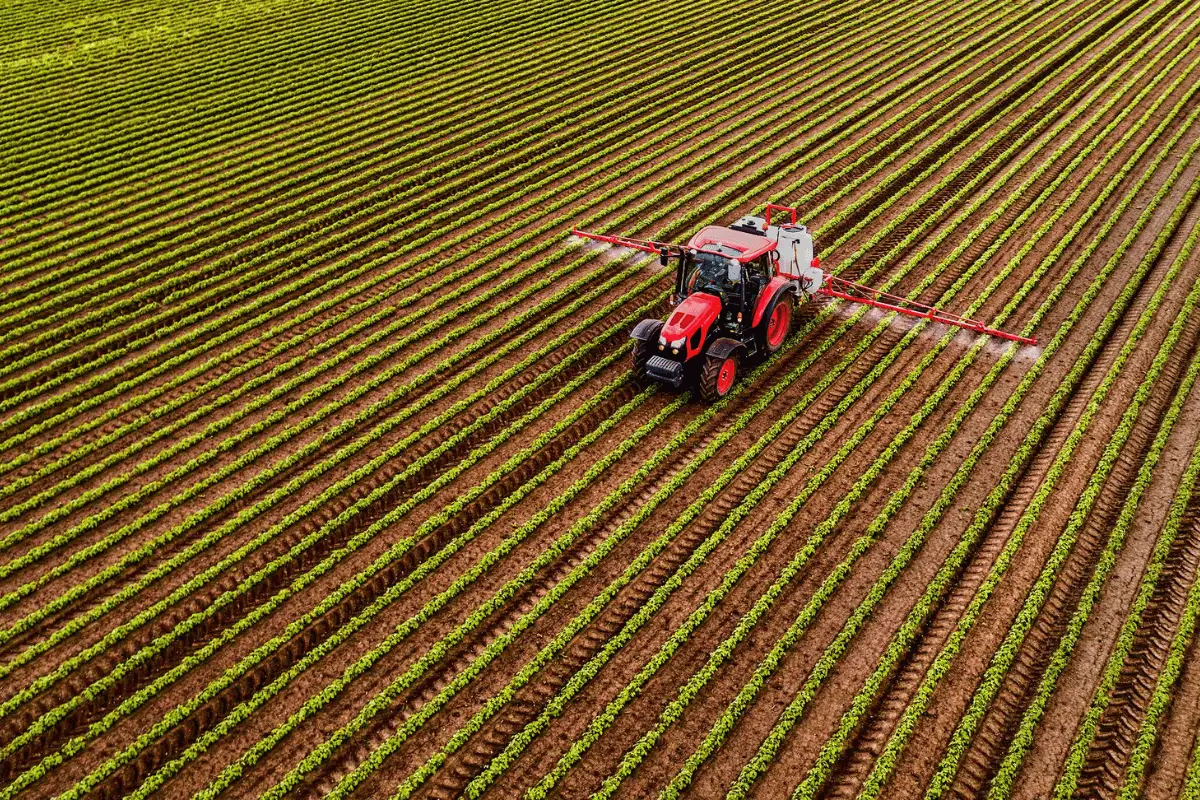
The Future of Fertilizer Manufacturing in the USA
As agriculture continues to evolve in response to global challenges such as climate change, population growth, and resource scarcity, fertilizer manufacturers in USA are adapting to meet the demands of a changing world. The future of fertilizer manufacturing is marked by a shift toward sustainable practices, advanced technologies, and innovative products that cater to the needs of modern farmers. These trends are shaping a more efficient, eco-friendly, and productive fertilizer industry that will continue to play a crucial role in ensuring food security and supporting the agricultural sector.
1. Embracing Organic Fertilizer Production
One of the most significant trends in the future of fertilizer manufacturing is the growing demand for organic fertilizers. As consumers become more health-conscious and environmentally aware, there is a shift toward sustainable farming practices that rely on natural inputs. Fertilizer manufacturers in USA are responding to this demand by investing in the production of organic fertilizers made from natural sources such as compost, animal manure, seaweed, and bone meal.
These organic fertilizers offer several benefits, including improved soil health, reduced chemical runoff, and enhanced biodiversity. Leading manufacturers like The Andersons, Inc. and Nutrien Ltd. have already expanded their product lines to include organic fertilizers, catering to farmers who are transitioning to organic or sustainable farming practices. This trend is expected to continue as more farmers seek eco-friendly alternatives to synthetic fertilizers.
2. Adoption of Precision Agriculture and Smart Technologies
The integration of precision agriculture and smart technologies is revolutionizing the way fertilizers are produced and applied. Fertilizer manufacturers in USA are leveraging advanced technologies such as GPS-guided application systems, drones, and data analytics to develop fertilizers that are tailored to specific crop needs and soil conditions. This precision approach ensures that nutrients are applied accurately, reducing waste and minimizing the environmental impact.
For instance, manufacturers are developing “smart fertilizers” that incorporate sensors and controlled-release mechanisms, allowing nutrients to be released based on soil moisture, temperature, and plant growth stages. This technology ensures that crops receive the right amount of nutrients at the right time, optimizing growth and yield. The use of precision technology not only improves fertilizer efficiency but also supports sustainable farming practices by reducing nutrient runoff and greenhouse gas emissions.
According to Dr. James O’Neill, a leading expert in agricultural technology, “The future of fertilizer manufacturing lies in the integration of data-driven solutions that enable farmers to apply fertilizers more efficiently, ultimately enhancing productivity while minimizing environmental impact.”
3. Development of Eco-Friendly and Sustainable Fertilizer Solutions
Sustainability is a central focus for the future of fertilizer manufacturers in USA. As environmental concerns continue to rise, manufacturers are developing eco-friendly fertilizers that have a lower impact on the environment. This includes the use of enhanced-efficiency fertilizers (EEFs) that release nutrients gradually, reducing the risk of nutrient leaching and runoff into water bodies.
Moreover, manufacturers are exploring the use of renewable energy sources in their production processes, such as wind, solar, and biomass, to reduce their carbon footprint. Companies like CF Industries and The Mosaic Company have already made significant investments in sustainability initiatives, aiming to reduce greenhouse gas emissions and improve energy efficiency. As sustainability becomes a priority, the development of environmentally friendly fertilizers will continue to gain momentum.
4. Integration of Biotechnology and Nutrient Recycling
Biotechnology is another area that is expected to play a significant role in the future of fertilizer manufacturing. Through genetic engineering and microbial technology, manufacturers are developing bio-based fertilizers that improve nutrient availability and uptake by plants. These biofertilizers contain beneficial microorganisms that enhance soil fertility and promote plant growth, offering a more sustainable alternative to conventional fertilizers.
Additionally, nutrient recycling is emerging as an innovative solution to address resource scarcity and waste management. By recovering nutrients from organic waste, such as food scraps, animal manure, and industrial by-products, fertilizer manufacturers in USA can produce high-quality fertilizers while reducing waste and conserving natural resources. This approach aligns with the principles of a circular economy, contributing to a more sustainable and resource-efficient agricultural sector.
5. Expansion of Digital Platforms and Farmer Education
Digital platforms and mobile applications are becoming increasingly popular as tools for farmer education and fertilizer management. Fertilizer manufacturers in USA are developing digital solutions that provide farmers with real-time information on soil health, nutrient requirements, and optimal fertilizer application rates. These platforms enable farmers to make informed decisions, ensuring that they apply the right type and amount of fertilizer at the right time.
For example, Yara North America has introduced the Atfarm digital platform, which uses satellite imagery and data analytics to help farmers monitor crop health and optimize fertilizer use. Such technologies empower farmers to maximize crop yields while minimizing environmental impact, contributing to the adoption of sustainable farming practices.
6. The Rise of Climate-Smart Fertilizers
Climate change poses a significant challenge to agriculture, and fertilizer manufacturers in USA are developing climate-smart fertilizers that can adapt to changing weather patterns and extreme conditions. These fertilizers are designed to enhance crop resilience, improve water retention, and reduce greenhouse gas emissions, making them suitable for use in diverse climates and soil types.
For instance, manufacturers are exploring the use of biochar as a soil amendment, which not only improves soil structure but also sequesters carbon, helping to mitigate climate change. This innovative approach demonstrates the potential for fertilizers to play a role in addressing climate-related challenges while supporting sustainable agricultural practices.
7. Collaboration with Research Institutions and Government Agencies
The future of fertilizer manufacturing will involve greater collaboration between manufacturers, research institutions, government agencies, and farmers. By working together, these stakeholders can develop innovative solutions, share knowledge, and implement best practices that promote sustainable fertilizer use. Government initiatives that provide incentives for sustainable farming practices and support research in fertilizer technology will play a crucial role in driving the industry forward.
A Sustainable Path Forward
The future of fertilizer manufacturers in USA is centered around sustainability, innovation, and technology. As the industry continues to evolve, manufacturers are adopting advanced techniques, eco-friendly products, and precision agriculture solutions to meet the demands of modern farming. These trends not only benefit farmers by providing more efficient and cost-effective fertilizers but also contribute to environmental conservation and resource management.
By embracing these future trends, fertilizer manufacturers in USA are well-positioned to lead the way in sustainable agriculture, ensuring that the industry remains resilient, productive, and environmentally conscious. This forward-thinking approach will help meet the growing food demands of the population while safeguarding the planet for future generations.
Tips for Farmers: Choosing the Right Fertilizer Manufacturer
Selecting the right fertilizer manufacturers in USA is crucial for farmers who want to ensure the success of their crops. With numerous options available, it can be challenging to determine which manufacturer offers the best products to meet specific farming needs. This guide provides practical tips to help farmers make informed decisions when choosing a reliable fertilizer manufacturer.
1. Assess Product Quality and Range
The first step in selecting a fertilizer manufacturer is to evaluate the quality and variety of products they offer. Top fertilizer manufacturers in USA provide a wide range of fertilizers, including nitrogen-based, phosphorus-based, potassium-based, and organic options. Farmers should choose manufacturers that offer high-quality fertilizers tailored to their crop requirements, soil types, and environmental conditions.
Look for manufacturers with a reputation for consistency and quality, as this ensures that the fertilizers will provide the necessary nutrients for optimal crop growth. Reading product labels, consulting with agricultural experts, and researching online reviews can help farmers determine which manufacturers produce the most effective fertilizers.
2. Consider Sustainability Practices
Sustainable farming practices are becoming increasingly important, and farmers should choose fertilizer manufacturers in USA that prioritize sustainability. Manufacturers that adopt eco-friendly production methods, use renewable energy sources, and offer enhanced-efficiency fertilizers demonstrate a commitment to environmental stewardship.
Farmers can look for manufacturers with certifications such as ISO 14001, which indicates adherence to environmental management standards. Choosing a manufacturer with sustainable practices not only benefits the environment but also aligns with consumer demand for sustainably grown produce.
3. Evaluate Manufacturer Reputation and Experience
The reputation and experience of a fertilizer manufacturer can provide valuable insights into their reliability and product quality. Established manufacturers with a long history in the industry, such as The Mosaic Company and CF Industries, have proven track records of delivering high-quality fertilizers and supporting farmers across the USA.
To assess a manufacturer’s reputation, farmers can consult with fellow farmers, agricultural consultants, and industry experts. Additionally, reading case studies, testimonials, and online reviews can help gauge the manufacturer’s performance, customer service, and product effectiveness.
4. Check Availability and Distribution Network
The availability of fertilizers and the efficiency of the distribution network are essential factors to consider when choosing a manufacturer. Farmers need a consistent and timely supply of fertilizers to ensure uninterrupted crop growth. Fertilizer manufacturers in USA with a well-established distribution network can deliver products quickly and efficiently, even during peak planting seasons.
Manufacturers with multiple distribution centers and retail outlets across the country are more likely to have readily available stock, reducing the risk of delays or shortages. It’s important for farmers to choose a manufacturer that can provide prompt and reliable delivery services.
5. Compare Pricing and Cost-Effectiveness
While quality is a priority, the cost of fertilizers is also an important consideration for farmers. Farmers should compare the pricing of different fertilizer manufacturers in USA and evaluate the cost-effectiveness of their products. It’s essential to consider factors such as nutrient content, application rates, and long-term benefits when determining the value of a fertilizer.
Some manufacturers offer discounts for bulk purchases, loyalty programs, or seasonal promotions, which can help farmers save on costs. However, it’s crucial to avoid compromising on quality in an effort to save money, as inferior fertilizers can lead to poor crop performance and reduced yields.
6. Seek Technical Support and Customer Service
Choosing a manufacturer that offers excellent customer service and technical support can make a significant difference in achieving successful crop outcomes. Leading fertilizer manufacturers in USA provide expert advice, soil testing services, and application recommendations to help farmers make informed decisions about fertilizer use.
Farmers should select manufacturers that are responsive, knowledgeable, and willing to provide guidance on product selection, application rates, and crop nutrition management. This support can be invaluable, especially for farmers who are new to certain types of fertilizers or facing specific soil challenges.
7. Look for Innovation and Technology Integration
In today’s rapidly evolving agricultural landscape, manufacturers that embrace innovation and technology offer a competitive advantage. Farmers should choose fertilizer manufacturers in USA that invest in research and development to create advanced fertilizers, such as controlled-release and smart fertilizers.
Manufacturers that incorporate precision agriculture technologies, such as data analytics and remote sensing, can provide valuable insights into nutrient management and fertilizer application. Partnering with an innovative manufacturer ensures that farmers have access to cutting-edge products and techniques that improve efficiency and crop yields.
8. Check Product Labeling and Regulatory Compliance
It’s essential for farmers to choose manufacturers that comply with regulatory standards and provide clear, accurate product labeling. The label should include information about nutrient content, application rates, safety precautions, and usage instructions. This transparency ensures that farmers can make informed decisions about the fertilizers they apply to their crops.
Manufacturers that adhere to regulatory requirements and quality assurance standards, such as the Fertilizer Institute’s ResponsibleAg program, demonstrate a commitment to producing safe and reliable fertilizers.
9. Evaluate Compatibility with Crop and Soil Needs
Different crops and soil types require specific nutrients, and not all fertilizers are suitable for every farming scenario. Farmers should select fertilizer manufacturers in USA that offer products tailored to their crop requirements and soil conditions. For instance, certain crops may require higher levels of nitrogen, while others may benefit more from phosphorus or potassium.
Conducting soil tests and consulting with agricultural experts can help farmers determine which fertilizers are best suited for their fields. Choosing a manufacturer with a diverse product range ensures that farmers can find fertilizers that match their crop and soil needs.
10. Consider Local and Regional Support
Finally, farmers should consider working with fertilizer manufacturers in USA that have a strong local or regional presence. Manufacturers with local representatives, agronomists, or retail partners can provide personalized support, address specific concerns, and offer tailored recommendations based on regional soil and climate conditions.
By choosing a manufacturer with a local presence, farmers can build long-term relationships and receive ongoing support throughout the growing season.
Making the Right Choice for Optimal Crop Growth
Selecting the right fertilizer manufacturer is a critical decision that can significantly impact crop yield, soil health, and overall farm productivity. By considering factors such as product quality, sustainability practices, pricing, customer service, and innovation, farmers can choose a reliable fertilizer manufacturers in USA that meets their specific needs.
The right partnership with a reputable manufacturer ensures that farmers have access to high-quality fertilizers that support healthy crop growth, improve soil fertility, and contribute to sustainable farming practices. By following these tips, farmers can make informed decisions that lead to successful harvests and long-term agricultural success.
FAQs Related to Fertilizer Manufacturers in the USA
1. Who are the largest fertilizer manufacturers in USA?
The largest fertilizer manufacturers in USA include CF Industries Holdings, Inc., The Mosaic Company, Nutrien Ltd., and Yara North America. These companies are recognized for their extensive production capacities, diverse product ranges, and significant contributions to both the domestic and international fertilizer markets. They have established themselves as industry leaders by providing high-quality fertilizers and promoting sustainable farming practices.
2. What are the main types of fertilizers produced by manufacturers in the USA?
The main types of fertilizers produced by fertilizer manufacturers in USA include nitrogen-based, phosphorus-based, potassium-based, and organic fertilizers. Nitrogen fertilizers, such as urea and ammonium nitrate, are widely used for their ability to promote plant growth. Phosphorus fertilizers like monoammonium phosphate (MAP) enhance root development, while potassium fertilizers (potash) improve plant resilience and nutrient absorption. Organic fertilizers, made from natural sources such as compost and animal manure, are gaining popularity for their eco-friendly benefits.
3. How do fertilizer manufacturers in the USA contribute to sustainable agriculture?
Fertilizer manufacturers in USA contribute to sustainable agriculture by developing environmentally friendly fertilizers, investing in precision agriculture technologies, and adopting sustainable production practices. Many manufacturers produce enhanced-efficiency fertilizers (EEFs) that release nutrients slowly, reducing the risk of nutrient runoff and environmental pollution. Additionally, companies like Nutrien Ltd. and Yara North America have implemented renewable energy sources and carbon capture technologies to minimize their carbon footprint, supporting the long-term sustainability of the agricultural sector.
4. How do I choose the right fertilizer manufacturer for my farm?
When choosing a fertilizer manufacturer in USA, consider factors such as product quality, range, sustainability practices, reputation, customer service, and pricing. Look for manufacturers with a proven track record, diverse product offerings, and a commitment to environmentally friendly practices. It’s also essential to evaluate whether the manufacturer offers fertilizers that match your crop and soil needs, as well as access to technical support and reliable distribution channels.
5. What are the trends shaping the future of fertilizer manufacturing in the USA?
The future of fertilizer manufacturing in USA is shaped by trends such as precision agriculture, organic fertilizer production, biotechnology, and the development of eco-friendly fertilizers. Manufacturers are investing in advanced technologies, such as smart fertilizers with controlled-release mechanisms, to improve nutrient efficiency and reduce environmental impact. Additionally, the shift toward sustainable and renewable energy sources in production processes is expected to drive innovation and ensure a more sustainable fertilizer industry.
6. Are there organic fertilizer manufacturers in the USA?
Yes, there are several fertilizer manufacturers in USA that specialize in producing organic fertilizers. Companies like The Andersons, Inc. and Nutrien Ltd. offer a range of organic fertilizers made from natural ingredients such as compost, seaweed, and animal manure. These fertilizers provide essential nutrients for crops while promoting soil health and reducing the environmental impact of farming.
7. How do fertilizer manufacturers ensure the quality of their products?
Fertilizer manufacturers in USA ensure the quality of their products by adhering to industry standards, conducting rigorous testing, and implementing quality control measures throughout the production process. Many manufacturers are certified under programs such as ISO 9001 (Quality Management Systems) and ResponsibleAg, which require compliance with safety, environmental, and quality assurance practices. This ensures that farmers receive high-quality, reliable fertilizers that meet their crop nutrition needs.
8. How has technology impacted fertilizer manufacturing in the USA?
Technology has significantly impacted fertilizer manufacturing in USA by introducing precision agriculture, automation, data analytics, and smart fertilizers. These advancements have improved the efficiency, accuracy, and sustainability of fertilizer production and application. For example, precision agriculture allows for targeted fertilizer application, reducing waste and enhancing nutrient uptake by crops. Automation and digital technologies have streamlined production processes, ensuring consistency and quality in fertilizer products.
9. What role do fertilizer manufacturers play in supporting the USA’s agricultural economy?
Fertilizer manufacturers in USA play a vital role in supporting the country’s agricultural economy by providing essential nutrients that enhance crop yields, improve soil fertility, and support food security. The industry contributes significantly to the economy through job creation, export revenue, and technological innovation. According to the Fertilizer Institute, the fertilizer industry supports over 89,000 direct jobs and generates over $130 billion annually in economic contributions.
10. What challenges do fertilizer manufacturers face in the USA?
Fertilizer manufacturers in USA face challenges such as regulatory compliance, environmental concerns, rising raw material costs, supply chain disruptions, and market competition. Environmental regulations require manufacturers to adopt cleaner production methods, which can increase operational costs. Fluctuating prices of raw materials like natural gas and phosphate rock also impact profitability. Additionally, supply chain disruptions, especially during events like the COVID-19 pandemic, pose challenges in ensuring a consistent supply of fertilizers to farmers.






